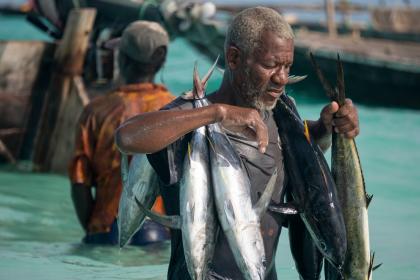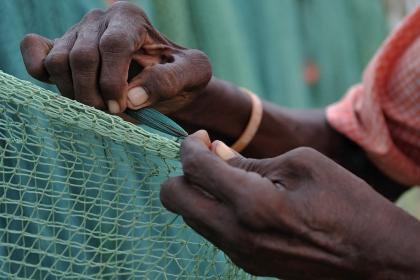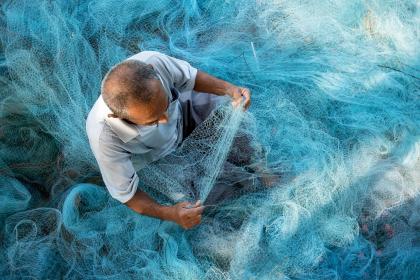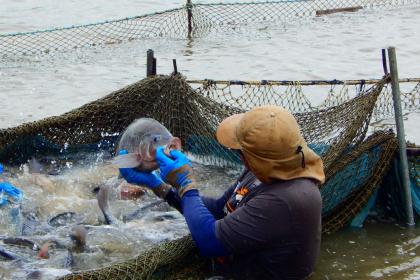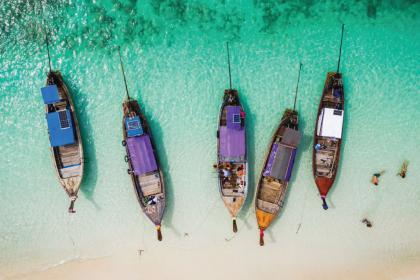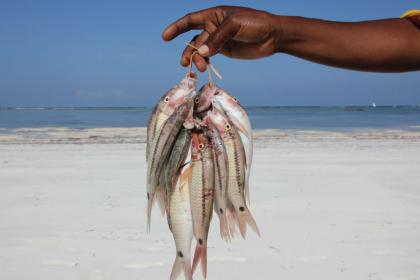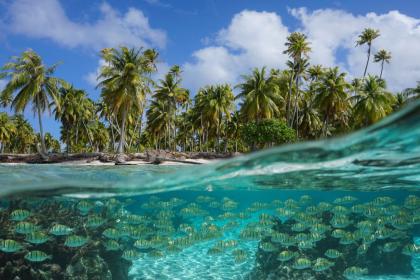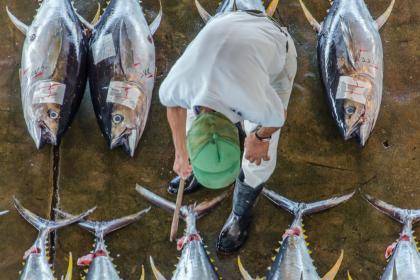The Oceans Economy offers significant untapped opportunities for sustainable development. It is estimated that ocean-based sectors may double in size by 2030. Developments in technology and limits on land-based activities are making the oceans as a new promising but fragile, economic frontier. Sustainable growth in ocean-based sectors can be a vector for the implementation of SDG 14 and other related goals in coastal developing countries, particularly in Small Island Developing States (SIDS).
The main challenges for coastal developing countries include: 1) limited capacity by national stakeholders to identify and harness opportunities arising from sustainable ocean-based sectors; 2) lack of shared vision, coordination mechanisms and cooperation among stakeholders; 3) elusive trade opportunities for ocean-based sectors due to significant trade barriers including high tariffs and tariff peaks, complex non-tariff measures, and private standards relevant to products and services in ocean-based economic sectors; 4) overall, limited legal and institutional frameworks for the sustainable governance of oceans in accordance with the international legal framework for oceans set out in the 1982 United Nations Convention on the Law of the Sea (UNCLOS) and applicable related instruments. Additionally, these opportunities may be hindered by limited resilience and adaptation capacities to climate change related events.
Objective
The project aims at supporting coastal developing countries, and particularly SIDS, in realizing economic benefits from the sustainable use of marine resources and understanding the legal and institutional frameworks underpinning such potential. It will further assist coastal developing countries and key stakeholders in promoting the sustainable trade of products and services in ocean-based economic sectors by analyzing, elaborating and adopting evidence-based and policy-coherent Oceans Economy and Trade Strategies (OETS) and enhancing national implementing capacities.
Activities
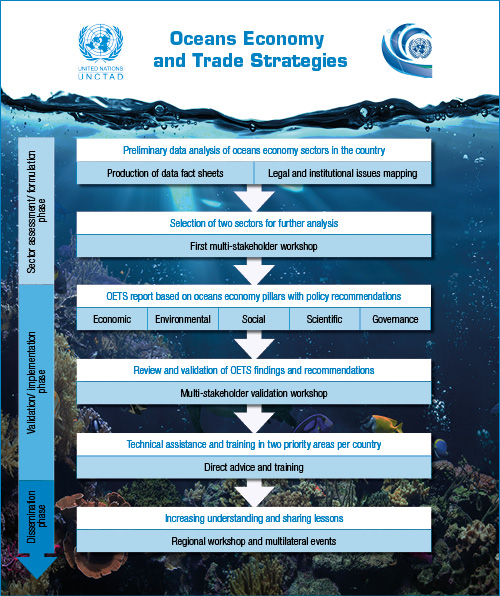 The project will have three main phases: assessment/formulation, validation/implementation; and dissemination. The project will have a set of research, dialogue and capacity building country owned activities.
The project will have three main phases: assessment/formulation, validation/implementation; and dissemination. The project will have a set of research, dialogue and capacity building country owned activities.
Intended Outcomes
-
Improved capacity of national stakeholders to assess and identify promising products and/or services in key ocean-based economic sectors within the UNCLOS framework
-
Strengthened capacity of stakeholders in defining policy options and implementing priority actions to support sustainable trade in products and services in ocean-based economic sectors in beneficiary countries.
-
Increased understanding at the regional level on how to design and implement OETS as tool to promote sustainable trade of products and services in ocean-based economic sectors within the UNCLOS framework
Link to the SDGs
The OETS project will provide a direct contribution to the implementation and advancement of trade and economic targets of SDG 14 (Conserve and sustainable use oceans, seas and marine resources), namely target 4 (Fight against illegal, unreported and unregulated fishing (IUU fishing), conservation and management of marine living resources), 6 (phasing out certain fish subsidies), b (providing access for small-scale artisanal fishermen to marine resources and markets) and 7 (enhancing the economic benefits to SIDS and LDCs from the sustainable use of marine resources) and 14c (enhancing the conservation and sustainable use of oceans and their resources by implementing international law as reflected in UNCLOS, which provides the legal framework for the conservation and sustainable use of oceans and their resources).
Monitoring and Evaluation
Monitoring will be undertaken by UNCTAD and DOALOS management, namely, the Head of UNCTAD’s Trade, Environment, Climate Change and Sustainable Development Branch and the Director of DOALOS, or their respective designates. They will hold a joint conference call every six months with the implementation team to ensure the advancement of the project, including specific outputs, and to ensure efficient resource use. The project will allocate around 2 per cent of the project’s budget to conduct an external evaluation of the project.
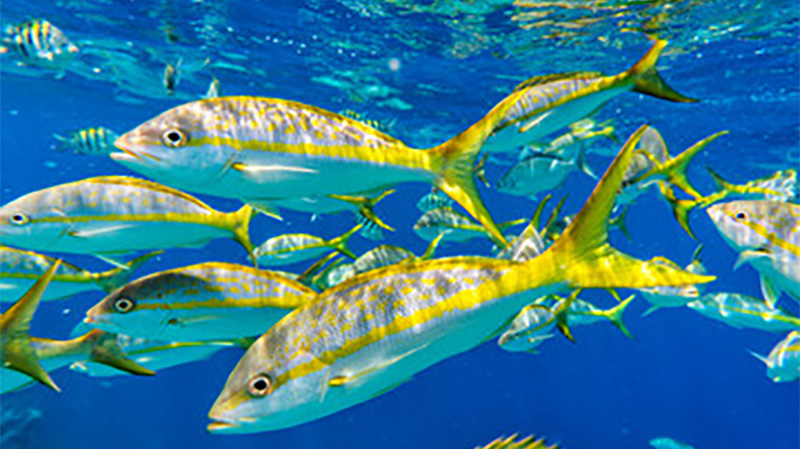
Project Code
1819KPartners
United Nations Division on Oceans Affairs and the Law of the Sea (DOALOS)Donors
United Nations Development Account (11th Tranche)Beneficiaries
Barbados, Belize, and Costa Rica
Duration
2018-2021Budget
$ 650,000Contact
UNCTAD David Vivas Eugui, David.Vivaseugui@unctad.org
UNCTAD Claudia Contreras, claudia.contreras@unctad.org
DOALOS: doalos@un.org
Commonwealth: Rosemarie Cadogan r.cadogan@commonwealth.int
This project is implemented by UNCTAD and DOALOS, in cooperation with the Commonwealth.
Related
Topic
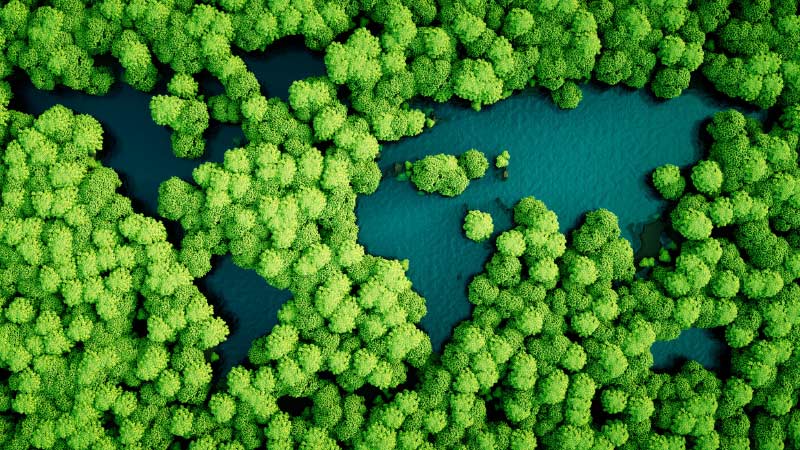 Trade and environment
Trade and environment




